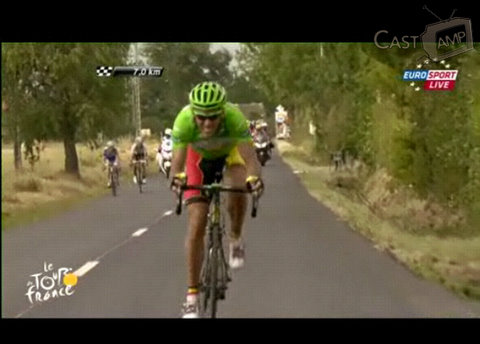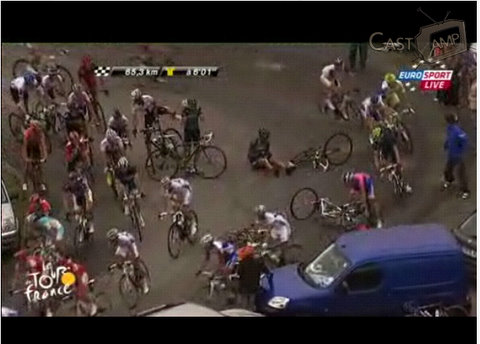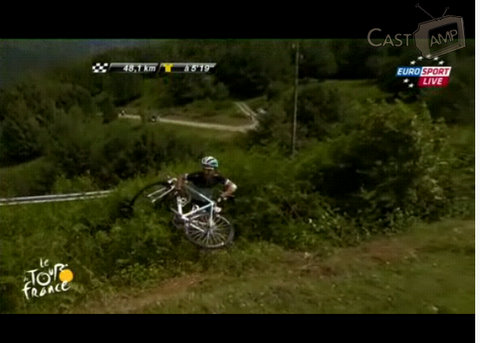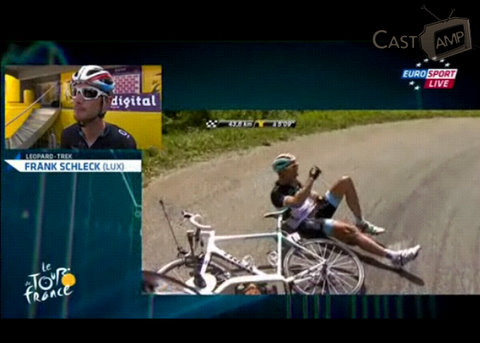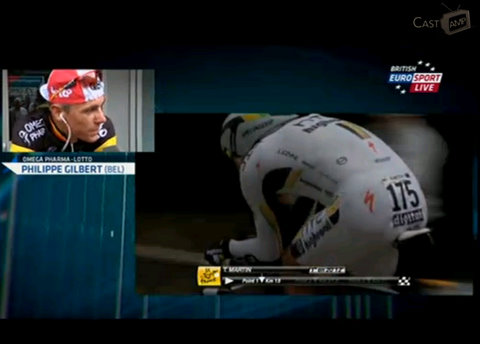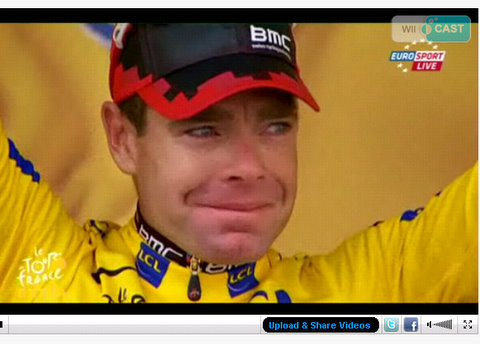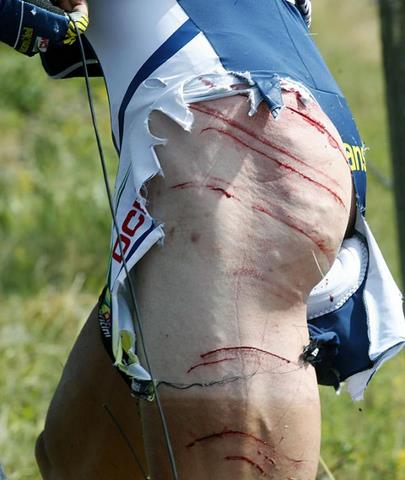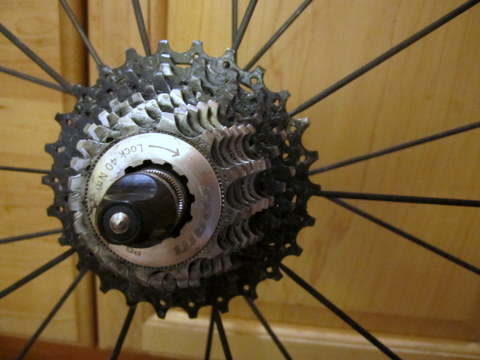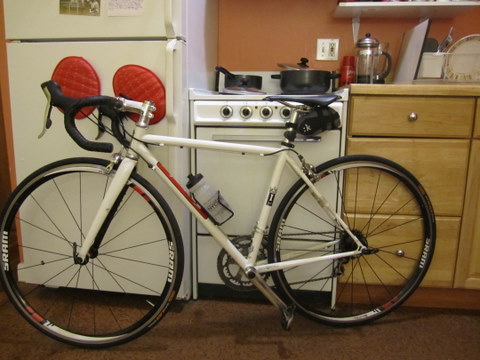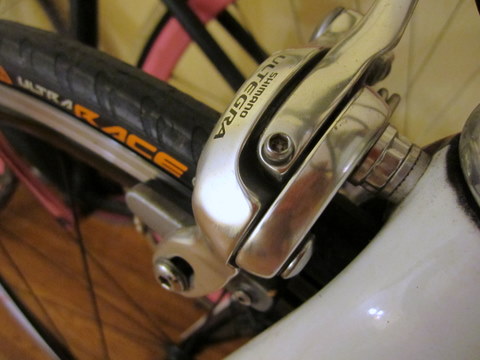A few days ago, I walked into my aunt’s house to pick up a French press pot. Someone was vacuuming in the kitchen, but oddly, my aunt’s voice came from upstairs. She hurried down and squeezed past the mostly closed kitchen door behind which the vacuumer lurked. “Kaiko’s here, but don’t come out like that,” she said, before returning into view with both a Bodum French press pot and a Chemex.
“It’s, you know, that person,” she said to me and my mother. She was referring to, of course, her husband, my uncle. In response, my mother prepared her sympathetic face as my aunt sighed and shook her head. The game had begun.

Perhaps a uniquely Asian sport, and a particularly popular one among women over 50, my mother and my aunts play this game of spousal complaint often. The consistent nature of the complaints doesn’t seem to detract from the fun, only to add to the vigor of the match itself. No one person wins, unless, of course, someone’s spouse has done something particularly bad. This makes the sport not so much a sparring contest between the female members of my family, but more akin to competitive jabbing of an allegedly ineffective and often [though not always] absent target. And the jabbing is done with unforgiving enthusiasm; perhaps under the irrational hope that these complaints, voiced enough, might spark karma into abolishing incompetent spouses. Or, at the very least, enable them to vacuum more efficiently.
“At least you have someone willing to vacuum the house,” my mother said, throwing down the gauntlet. An invitation to include ungrateful children into the verbal exchange, my aunt gamely replied in kind: “but if Kaiko did it for you, at least she’d do it right.” Too familiar with this game, and unwilling to get sucked into choosing sides or presenting a modicum of reason into the debate, I clutched the Chemex and stared at my feet, making noncommittal guttural sounds when appropriate, waiting it out.
And though half a world away, those same actions reminded me of staring at something else – a sparklingly clean cassette that time – as I made the same somewhat noncommittal guttural sounds and waited that out, too. All 116 miles of it.
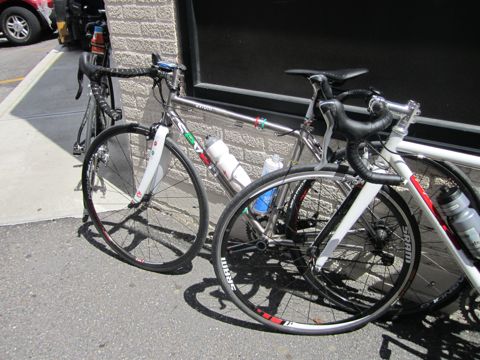
A ride that was presented in characteristically vague terms as “a century,” or “a century plus a little more,” it was my last chance to check off a triple digit ride before I left for Japan. Dave N., fully knowing this, laid a fail-proof trap, accompanying the description of the ride with phrases like “it’ll be fun!” and “if you can do 70 miles [my longest ride until two Wednesdays ago], you can do 100…and the rest is, you know, just a little bit more.” It’s true that I knew what I was getting into [to some extent], but there was a lot of voluntary blindness involved, too. When Geoff sent us the ride route, I briefly glanced at it before buying a few extra Bonk Breakers. Dave had said I would get through it. That I would “be fine.” I found faith in the fact that he had faith in me, and so we agreed to meet at Ride Studio Café on a Wednesday morning to ride to Mount Wachusett and back.
The equivalent of a charity ride, but one in which contributions came in the form of pain inflicted on the charity at hand, Dave N., Geoff, Jeremy, and I headed out on the ride on which, Dave N. clarified, I would “do fine,” but perhaps not “be fine.” The loop headed out towards Harvard before picking up the Charles River Wheelmen Climb to the Clouds century route, and included a few “gratuitous climbs” on the way back, courtesy of Geoff. Instructed to stay on Geoff’s wheel, I took an Aleve, stuffed my pockets full of food, and tried to hang on.


My naïve belief that Nagog Hill and Oak Hill were going to be the worst of it [excluding Mount Wachusett] was, simply put, stupid. “Didn’t you look at the ride route?,” Dave said, “you do know it said 8,000 feet of climbing, right?” “I don’t even know what that means,” I gasped, spinning with aching legs. Geoff mashed up the climbs in his big ring while Dave stayed behind my lagging wheel, both barely breaking a sweat. Slogging up to the visitor’s center of Mount Wachusett [we didn’t go all the way to the top, although Geoff tried] at the stunning speed of 6mph, I stared at dizzy disbelief at my sweaty forearms. I considered clipping out and stopping to say “I’m just going to lie down here and die,” but each time deferred that decision for just a little bit longer. Geoff asked if I was still alive. I made my noncommittal guttural sound.
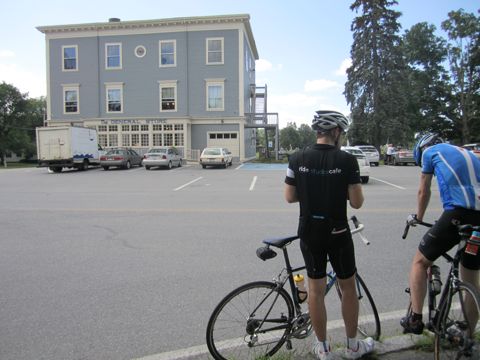
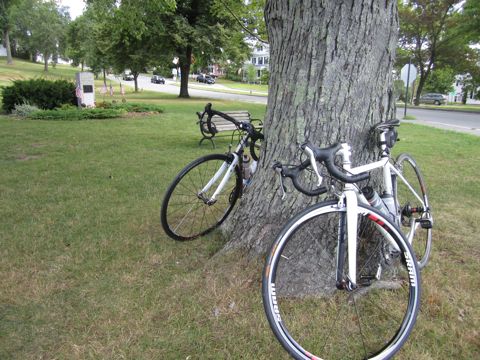
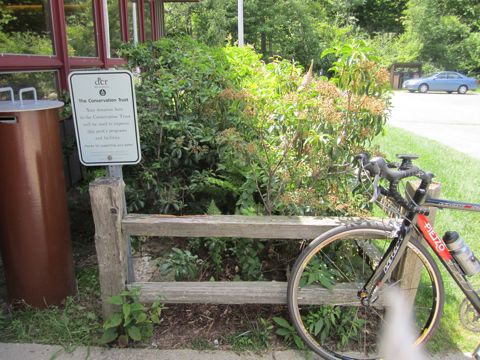
As long as the ride was, it can only accurately be described [as Dave put it] as comparable to childbirth: a painful process but one in which all is forgotten at the end. Well, almost all. Because while I generally did fine, some higher power determined that our ride required a little more epic. So when we hit the gravel-y path through Assabet River Park, a horde of deer files was released, congregating oh-so-conveniently on our asses.
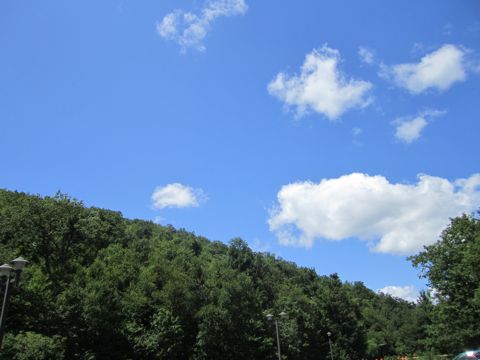
If you are a cyclist with a paint job you might sacrifice your entire epidermis and a few bones for, and also lack most bike-handling skills, the combination of gravel and flies sinking their teeth into the flesh of your backside is close to the 9th circle of Hell. Geoff accelerated, trying to lose the cloud of flies drafting off of him, and I tried to follow without eating sand, aware that should I do so, death by deer flies was certain. They stayed on us the entire way through the park, though, tattoo-ing me with unsightly red slotches all over my butt. A couple marks for the road back to Tokyo.
But I also came back with 116 miles with 7000 feet of climbing in 7.5 hours of riding under my belt, too. A few hours post-century-plus, at a celebratory get-together organized by Dave, I got something else; something as awesome as knowing I could throw down 116 miles: a necklace designed by Rob and crafted out of Seven titanium. A reminder of good friends, good rides, and accomplishments.
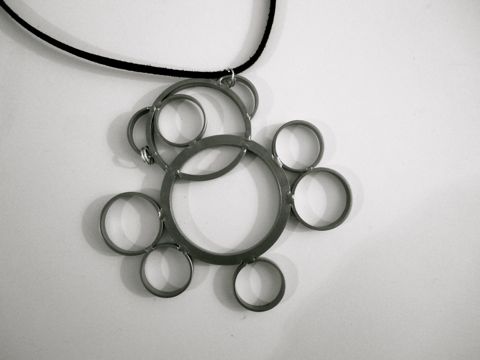
Hopefully with more to come…




